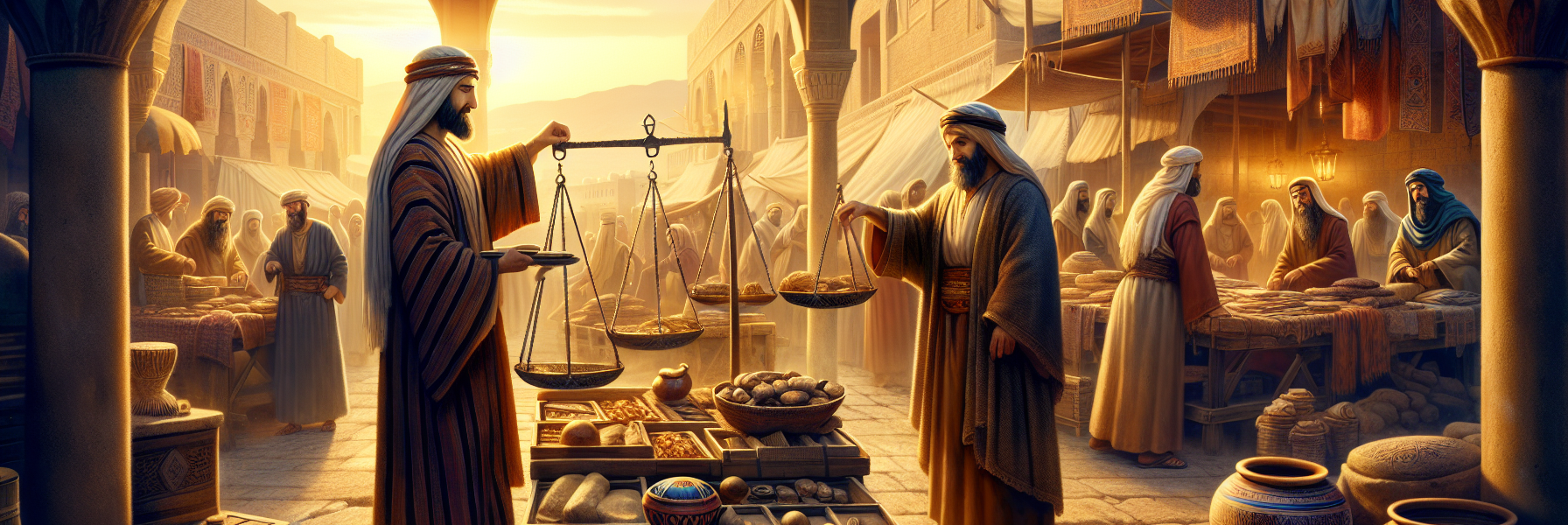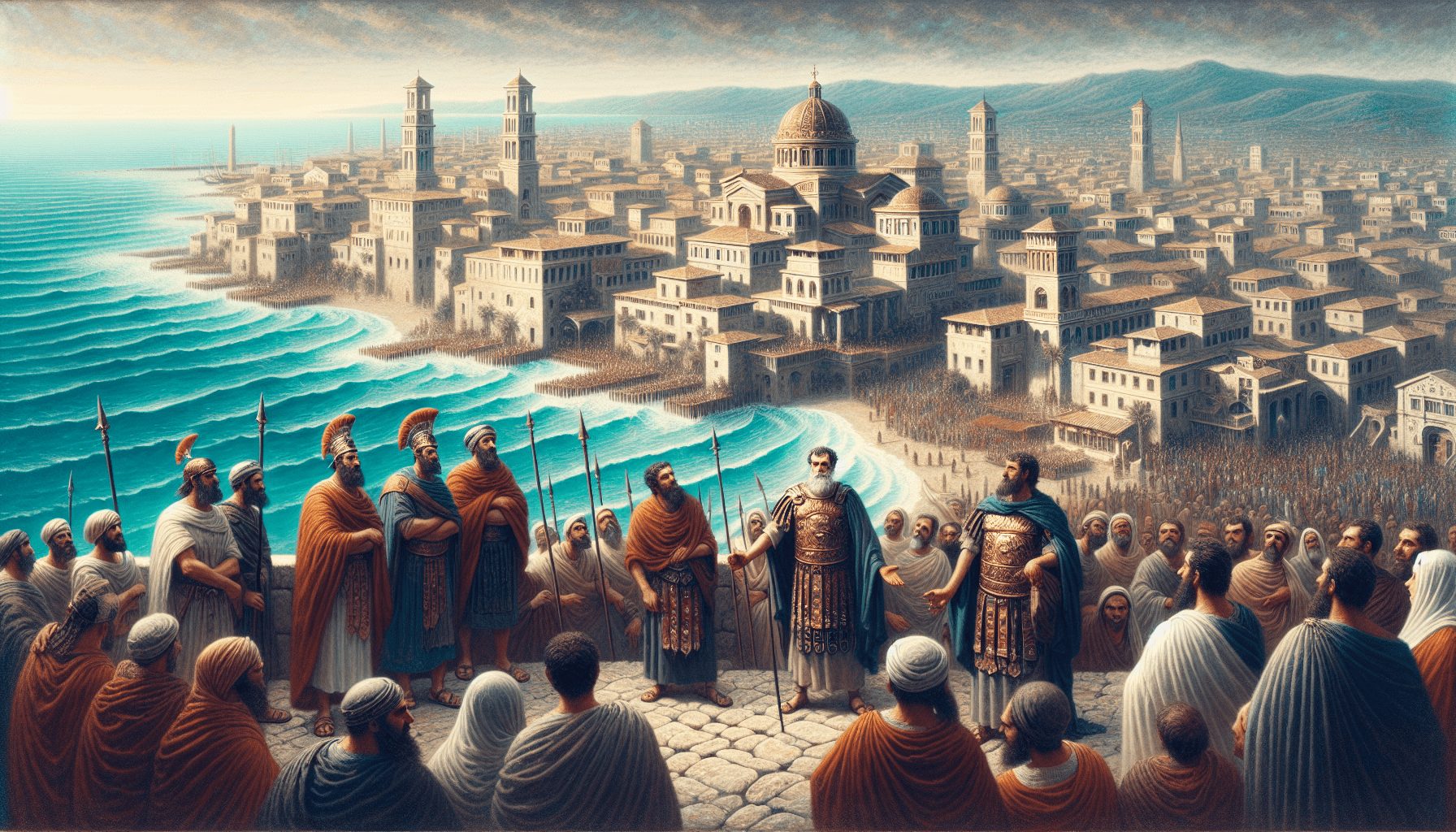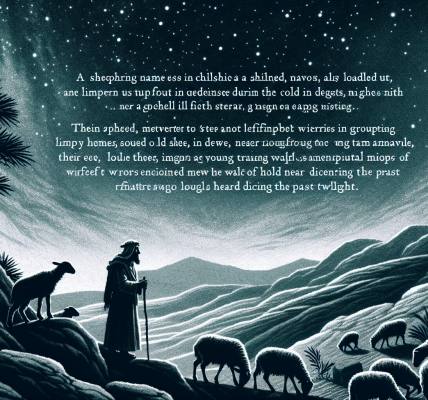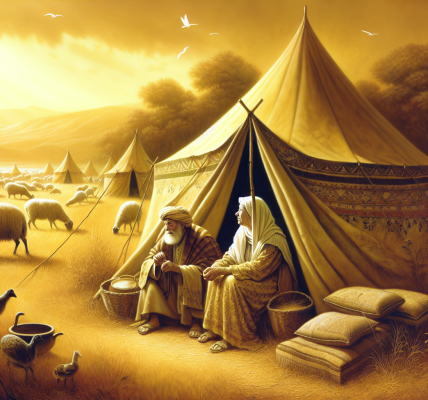**The Tale of Two Merchants: Wisdom and Folly in the Marketplace**
The sun rose over the bustling city of Gibeah, its golden rays stretching across the crowded marketplace where merchants set up their stalls for another day of trade. Among them were two men whose lives would soon reveal the truth of Solomon’s wisdom: *”A false balance is an abomination to the Lord, but a just weight is His delight.”* (Proverbs 11:1)
The first merchant, **Eliab**, was a man of integrity. His father had taught him from childhood that honesty in trade was not merely good business—it was worship. Each morning before opening his stall, he would inspect his scales, ensuring they were perfectly balanced. His goods—fine linen, spices from the East, and pottery crafted by skilled hands—were always of the highest quality, and he never deceived a customer. When a poor widow came to buy grain, he would press the measure down, shake it together, and let it overflow (Luke 6:38), knowing the Lord would bless his generosity.
Across the square stood **Raziah**, a shrewd but dishonest trader. His stall was adorned with the finest silks and rarest perfumes, yet beneath the glamour lay deceit. His scales were cleverly rigged, his jars of oil diluted with cheaper liquids, and his promises as fleeting as the morning mist. He scoffed at Eliab’s methods. “Why give more when you can take more?” he would mutter, smirking as he overcharged the unsuspecting.
One day, a great caravan arrived from Damascus, bringing news of a coming famine. The city buzzed with fear, and merchants scrambled to stockpile grain. Raziah saw his chance. He bought up all the wheat he could, then hoarded it, waiting to sell it at exorbitant prices. When desperate families came to him, he turned them away unless they could pay double. His wealth grew, but his heart hardened like Pharaoh’s before the plagues.
Eliab, however, opened his storehouses. “The Lord provides,” he told his servants. “We will not profit from the hunger of our neighbors.” He sold his grain at fair prices and even gave portions to those who had nothing. His wife, fearing they would be left with nothing, whispered anxiously, “What will we eat if our stores run dry?” Eliab took her hand and replied, *”The generous soul will be made rich, and he who waters will also be watered himself.”* (Proverbs 11:25)
As the famine deepened, Raziah’s greed became his undoing. The city elders, hearing of his exploitation, investigated his dealings. When they discovered his false scales and corrupt practices, they drove him out in disgrace. His wealth vanished like smoke, and he became a warning to all who loved deceit. *”The righteousness of the upright will deliver them, but the unfaithful will be caught by their own desire.”* (Proverbs 11:6)
Meanwhile, Eliab’s name became known for kindness. Traders from distant lands sought him out, trusting his word as bond. When the famine ended, his barns were filled anew, not by cunning, but by the favor of the Lord. The people blessed him, and his children grew in wisdom, walking in his footsteps of integrity.
In the end, the truth of the Proverb was clear: *”The wicked man does deceptive work, but he who sows righteousness will have a sure reward.”* (Proverbs 11:18) The scales of justice never lie, and the Lord delights in those who walk uprightly.
Thus, the tale of the two merchants was told for generations, a living testimony to the wisdom of Solomon—and the enduring truth that *”the fruit of the righteous is a tree of life, and he who wins souls is wise.”* (Proverbs 11:30)




